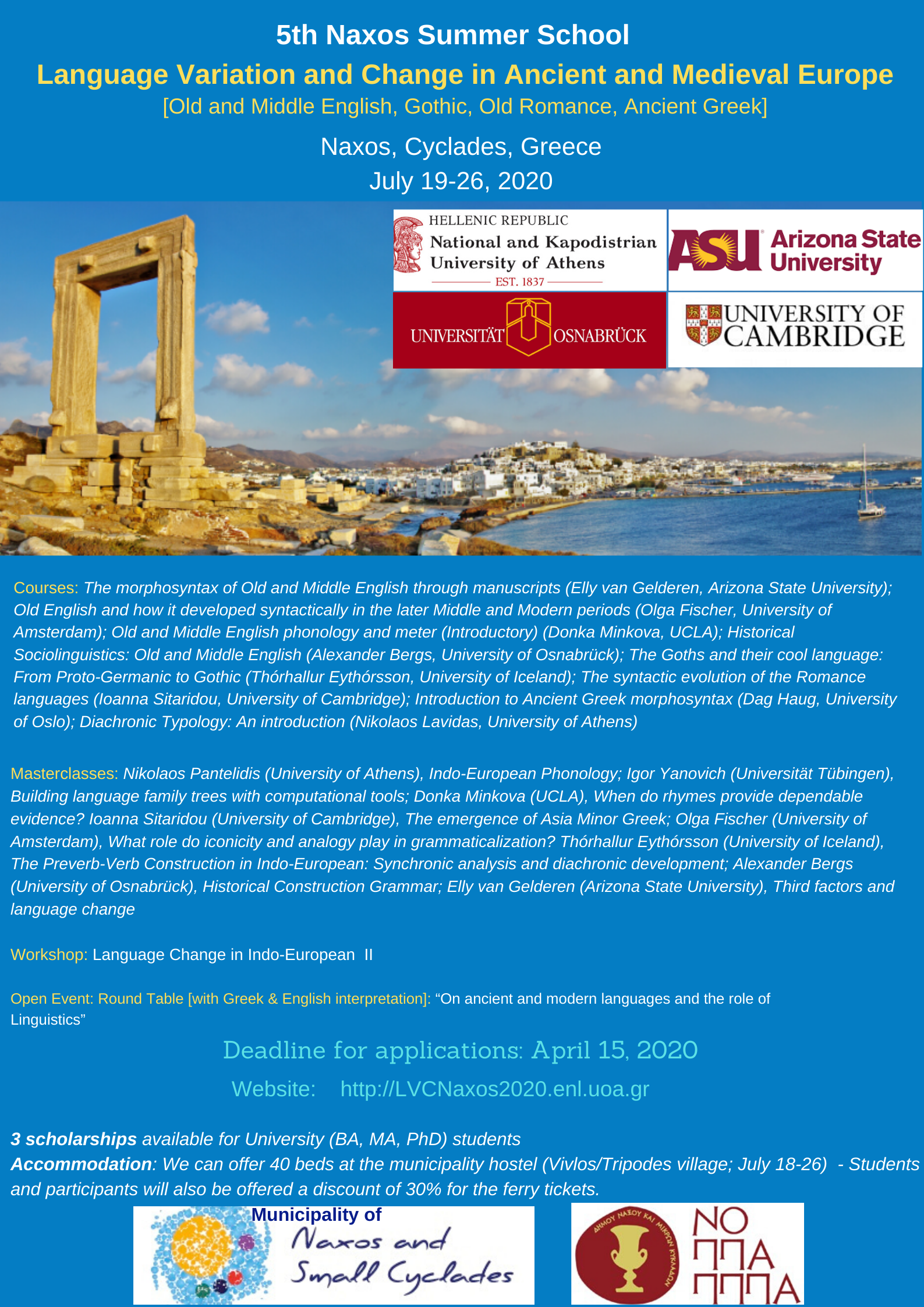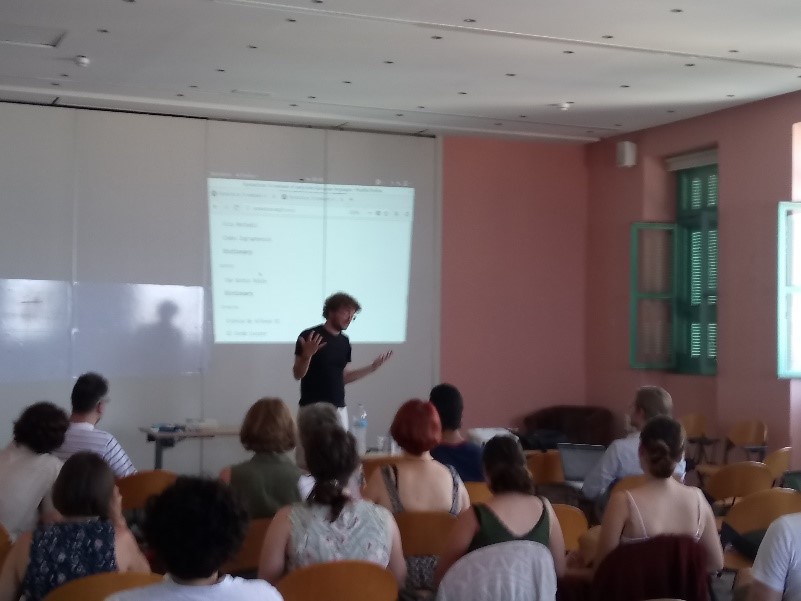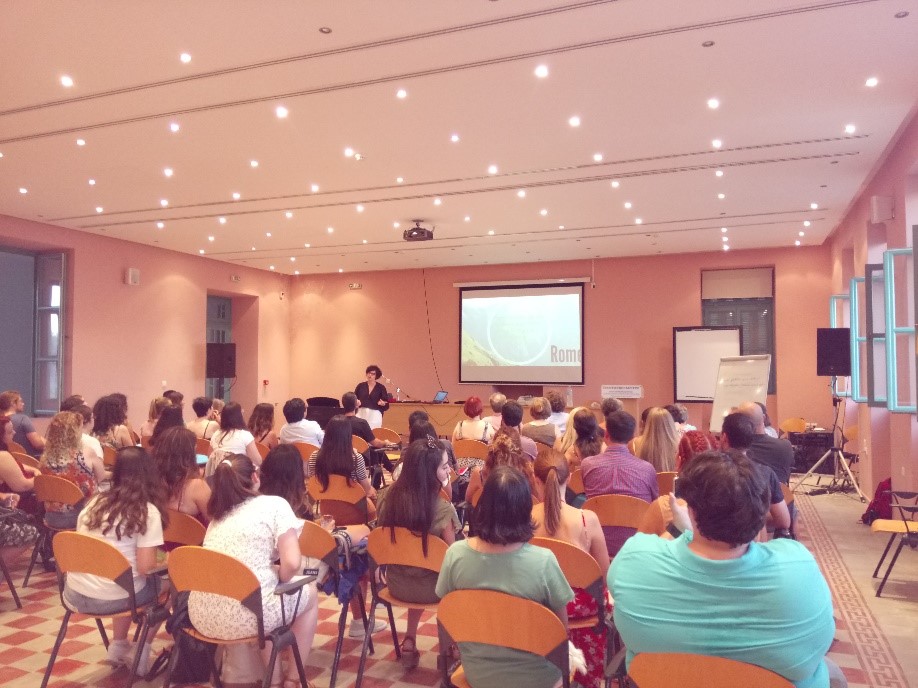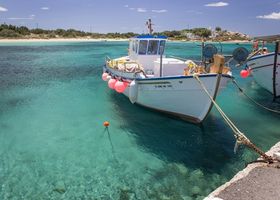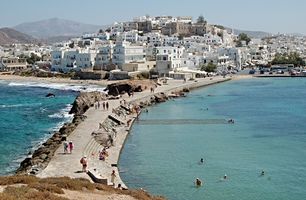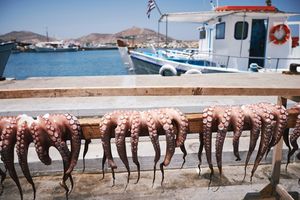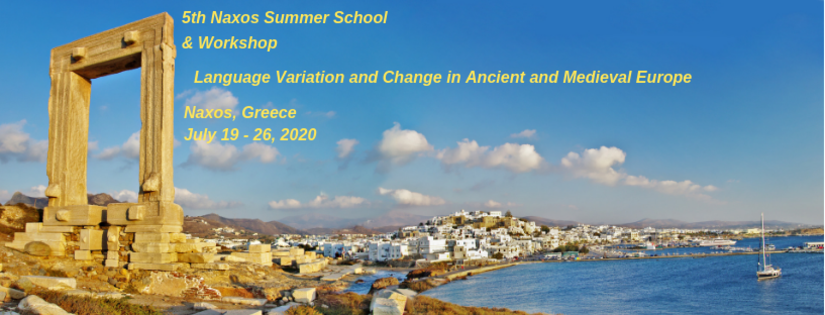Update: May 3, 2020
The first part of the 5th Naxos summer school will have the form of a digital summer school and will include all courses and masterclasses of the initial program (July 19-26, 2020). We also plan to deliver a second part of the school at a later day.
Participants will have to apply for registration by June 20 using the following link:
https://forms.gle/uwufv7Spa7RxXz8F9
There is no registration fee and participants may earn a scholarship for the next version of the summer school.
Update: April 15, 2020
Unfortunately, the 5th Naxos Summer School is postponed to a later date due to the coronavirus.
We are exploring ways to deliver the event at a later date in person or online.
We will announce the new deadline for applications (second round of applications) soon.
More announcements will occur in coming weeks.
Language Variation and Change in Ancient and Medieval Europe
♦OLD & MIDDLE ENGLISH ♦GOTHIC ♦OLD ROMANCE ♦ANCIENT GREEK
July 19 – 26, 2020
Naxos, Greece
National and Kapodistrian University of Athens, Arizona State University, University of Osnabrück and University of Cambridge are coordinating a summer school program, a workshop and master classes on ancient and medieval languages and linguistics, to be held on July 19-26, 2020 on the island of Naxos, Greece.
The summer school will offer intensive language classes and linguistic classes on language change and variation in Ancient and Medieval Europe (with emphasis on Old and Middle English, Gothic, Old Romance and Ancient Greek) for a period of seven days. Eight courses will be offered as well as eight master classes and a workshop. The aim is to attract students and scholars to study ancient and medieval languages in a relaxed yet very focused and stimulating atmosphere that promotes in depth analysis and discussion.
Courses: The morphosyntax of Old and Middle English through manuscripts (Elly van Gelderen, Arizona State University); Old English and how it developed syntactically in the later Middle and Modern periods (Olga Fischer, University of Amsterdam); Old and Middle English phonology and meter (Introductory) (Donka Minkova, UCLA); Historical Sociolinguistics: Old and Middle English (Alexander Bergs, University of Osnabrück); The Goths and their cool language: From Proto-Germanic to Gothic (Thórhallur Eythórsson, University of Iceland); The syntactic evolution of the Romance languages (Ioanna Sitaridou, University of Cambridge); Introduction to Ancient Greek morphosyntax (Dag Haug, University of Oslo); Diachronic Typology: An introduction (Nikolaos Lavidas, University of Athens)
Masterclasses: Nikolaos Pantelidis (University of Athens), Indo-European Phonology; Igor Yanovich (Universität Tübingen), Building language family trees with computational tools; Donka Minkova (UCLA), When do rhymes provide dependable evidence? Ioanna Sitaridou (University of Cambridge), The emergence of Asia Minor Greek; Olga Fischer (University of Amsterdam), What role do iconicity and analogy play in grammaticalization? Thórhallur Eythórsson (University of Iceland), The Preverb-Verb Construction in Indo-European: Synchronic analysis and diachronic development; Alexander Bergs (University of Osnabrück), Historical Construction Grammar; Elly van Gelderen (Arizona State University), Third factors and language change
The 5th Naxos Summer School on Language Variation and Change in Ancient and Medieval Europe (July 19-26, 2020) will also be organizing a workshop on “Language Change in Indo-European” II, to be held on July 22, 2020.
